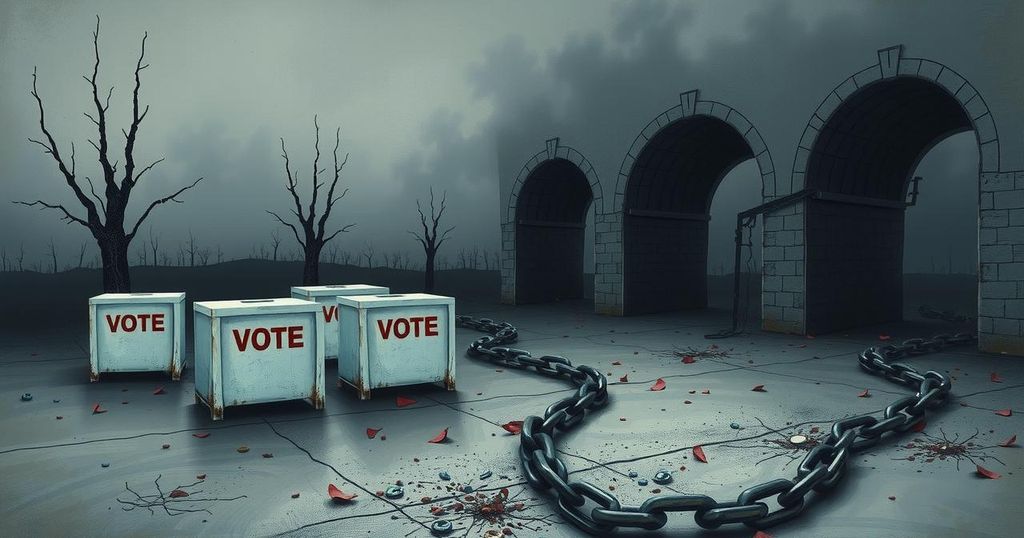The Dismemberment of Democracy in Nigeria
President Bola Ahmed Tinubu’s administration in Nigeria has faced significant criticism for undermining democratic principles. Key issues include improper electoral processes by INEC, widespread nepotism in appointments, erosion of the separation of powers, and a systematic crackdown on opposition parties. As the 2027 elections approach, there are rising fears of consolidating power within a single party, raising alarms about the future of democracy in Nigeria.
Democracy, in its essence, is about equal opportunity, accountability, and a respect for law. The degree to which a government embraces these ideals can significantly impact its standing among the populace. However, President Bola Ahmed Tinubu’s administration has shown a troubling divergence from these democratic principles over the past couple of years. Many argue that this has resulted in failures in key areas such as the economy, security, and governance.
Firstly, the Independent National Electoral Commission (INEC), tasked with regulating voter registration and reporting election results, has faced public criticism for underperformance. In recent election cycles under Tinubu’s leadership, only about 30 percent of applicants received their Permanent Voters Card, effectively disenfranchising millions of citizens from participating in elections. This situation raises serious concerns about the integrity of the electoral process in Nigeria under the current administration.
Secondly, accusations of nepotism have been directed towards Tinubu, particularly regarding appointments within his administration. The principle of Federal Character, aimed at ensuring inclusivity among Nigeria’s diverse ethnic groups, appears to have been ignored by the Tinubu administration. Observers note that most appointments have predominantly favored the Yoruba ethnic group, with crucial positions in security and governance being awarded based on personal relationships rather than merit.
One particularly striking example involves the Lagos-to-Calabar Coastal Road project. Tinubu allegedly awarded a staggering $700 billion project to a close associate without adherence to due process or National Assembly approval. This act raises eyebrows regarding governance standards but demonstrates a troubling trend of bypassing established protocols.
Additionally, the principle of separation of powers is being eroded. Since taking office, Tinubu has seemingly concentrated power within the executive branch while undermining legislative and judicial checks. By consolidating authority, he has blurred the lines designed to prevent any single entity from wielding excessive power.
Equally alarming is Tinubu’s approach to opposition parties. His administration appears to engage in a systematic dismantling of opposition through various means. Reports suggest that the main opposition party, the People’s Democratic Party (PDP), along with smaller parties like the Labour Party, have faced infiltrations and internal strife, severely weakening their effectiveness against the All Progressives Congress (APC).
Tinubu’s tolerance for dissent is evidently low; he has pursued actions against civil society, journalists, and protesters who challenge his governance or call for accountability. In a recent controversial move, he declared himself as the sole APC presidential candidate for the upcoming 2027 election, an action criticized for lacking democratic legitimacy and for undermining the fundamental tenets of party democracy.
As the 2027 elections draw near, many suggest that Tinubu’s strategic maneuvering serves a singular aim: ensuring the consolidation of power within the APC. This leads to a pressing call for citizens to unite and resist any efforts to diminish their democratic rights to vote for candidates of their choosing, emphasizing the importance of maintaining a multifaceted political landscape that reflects the people’s will.
This illustration of Nigeria’s current political climate suggests a concerning trajectory for democracy under President Tinubu’s rule. Although significant challenges exist, the resolve of citizens and advocacy for accountability is crucial in resisting authoritarian trends and preserving the democratic process in Nigeria.
In summary, President Tinubu’s administration has faced mounting criticism regarding its commitment to democratic principles, evidenced by actions that curtail voter access, evoke nepotism, and dissolve checks and balances among government branches. With the 2027 elections approaching, it is crucial for citizens to actively engage in defending their democratic rights against any attempts to consolidate power within a single political entity. The health of Nigeria’s democracy hangs in the balance, and the responsibility to safeguard it now rests in the hands of its people.
Original Source: tribuneonlineng.com




Post Comment